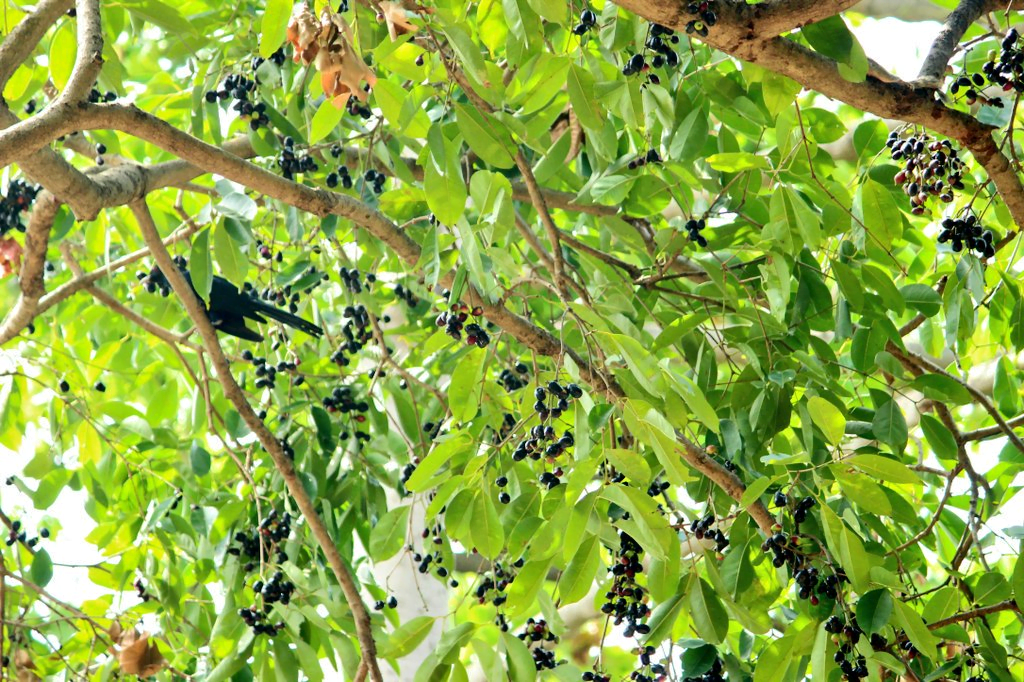
Common Name: Jamun Tree
Botanical Name: Syzygium Cumini
Hindi Name: Jamun
Marathi Name: Jambhul
Family: Myrtaceae
The Jamun tree, scientifically known as Syzygium cumini, is a medium-sized evergreen tree that is native to the Indian subcontinent. It is highly valued for its delicious fruit and holds cultural and medicinal significance in India.
The Jamun tree is known for its various uses and benefits. Here are some notable features:
1. Culinary Delight: The fruit of the Jamun tree is a popular summer treat in India. It has a unique sweet and tangy flavor and is consumed fresh, used in desserts, or made into refreshing beverages. It is also used to prepare jams, jellies, and sauces.
2. Medicinal Properties: Jamun fruit, leaves, bark, and seeds have been used in traditional Ayurvedic medicine for centuries. They are known for their medicinal properties and are used to manage various health conditions. Jamun is believed to have anti-diabetic, anti-inflammatory, and antimicrobial effects.
3. Blood Sugar Regulation: Jamun fruit is particularly renowned for its ability to help regulate blood sugar levels. It contains compounds that help slow down the conversion of starch into sugar, making it beneficial for individuals with diabetes or those at risk of developing diabetes.
4. Digestive Health: Jamun is known to aid in digestion and relieve digestive disorders. It is believed to have carminative and astringent properties that can help alleviate diarrhea, indigestion, and dysentery.
5. Antioxidant Powerhouse: Jamun fruit is rich in antioxidants, primarily anthocyanins, which give it its deep purple color. Antioxidants help neutralize free radicals in the body, protecting cells from damage and supporting overall health.
6. Oral Health: Jamun bark and leaves are traditionally used for oral care. They have antimicrobial properties that help combat bacteria in the mouth, promoting dental and gum health.
7. Environmental Benefits: Jamun trees provide shade, contribute to soil conservation, and help in preventing erosion. They also attract birds and wildlife, adding to the biodiversity of the ecosystem.
The Jamun tree’s culinary delights, medicinal properties, and environmental contributions make it a cherished and valuable tree in India. Its association with good health, especially in managing blood sugar levels, has made it an important component of traditional medicine and a favorite fruit among many.
